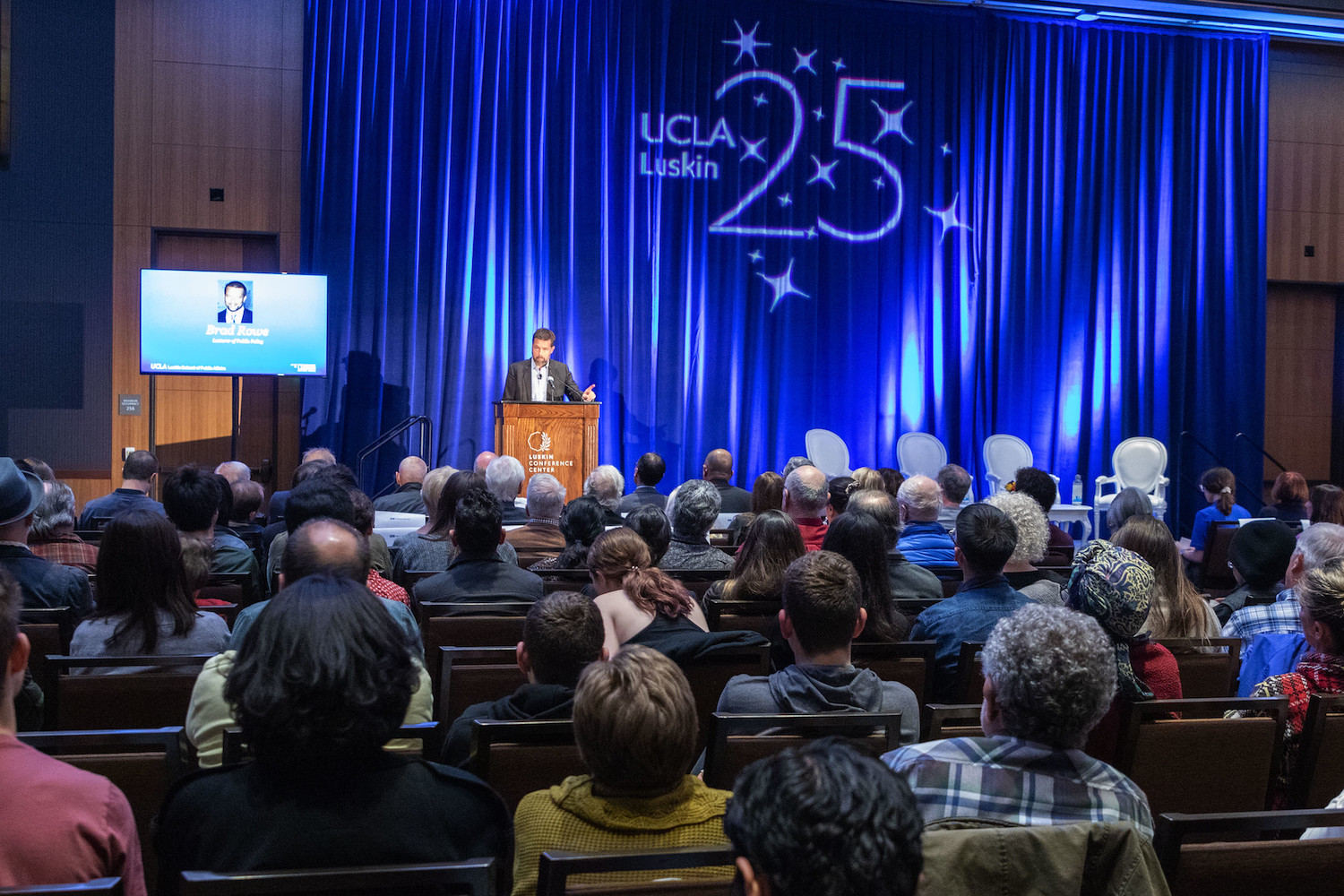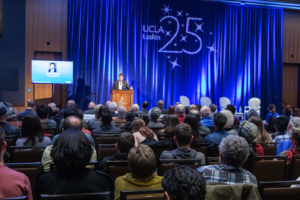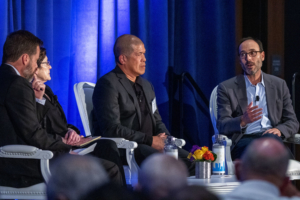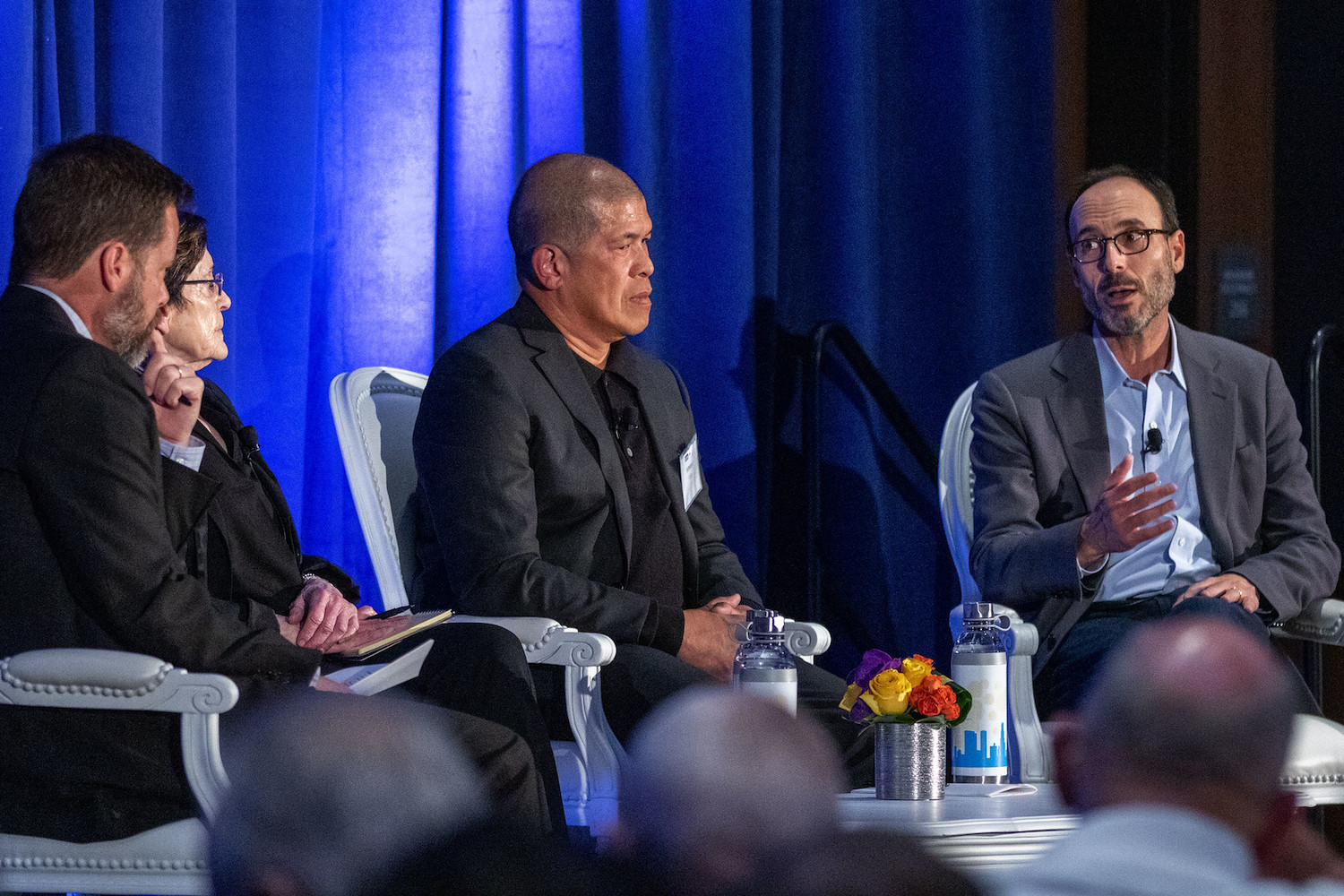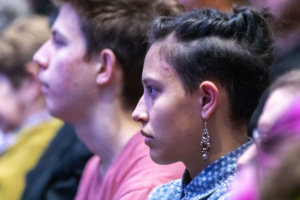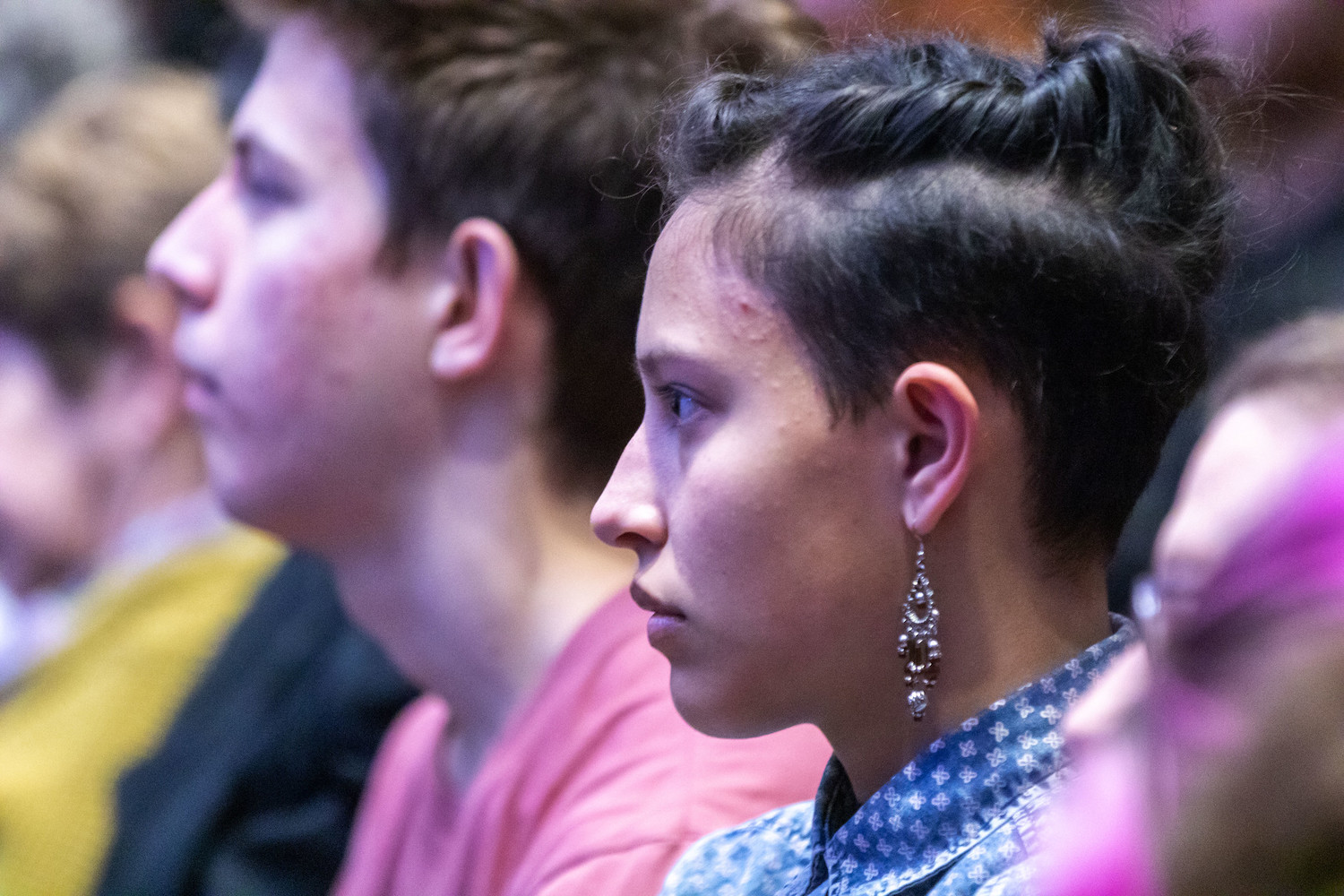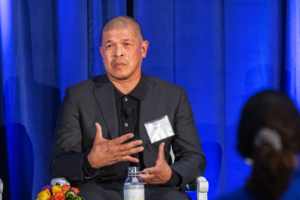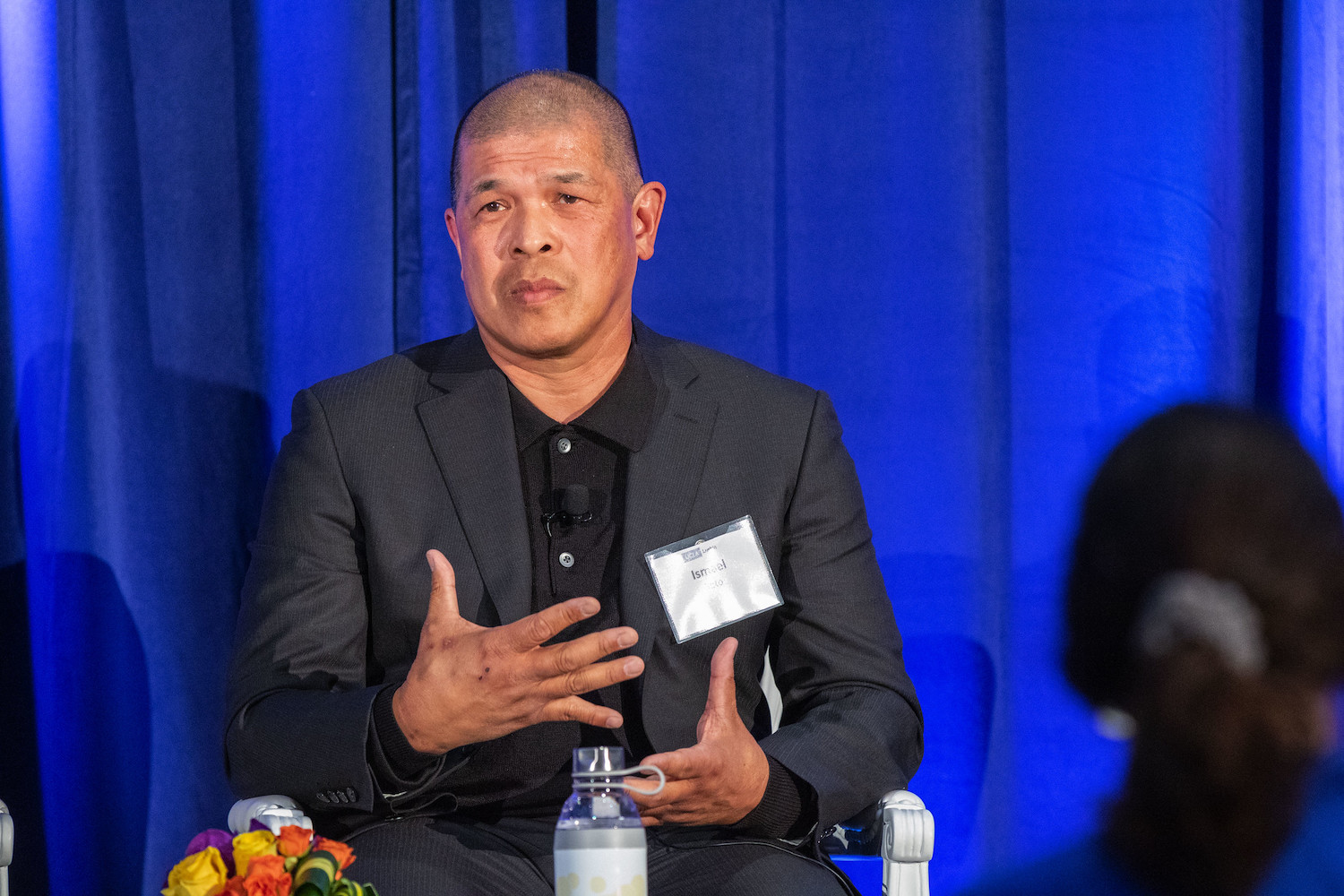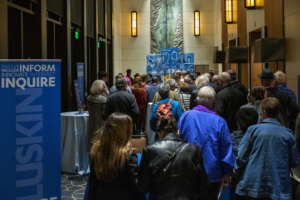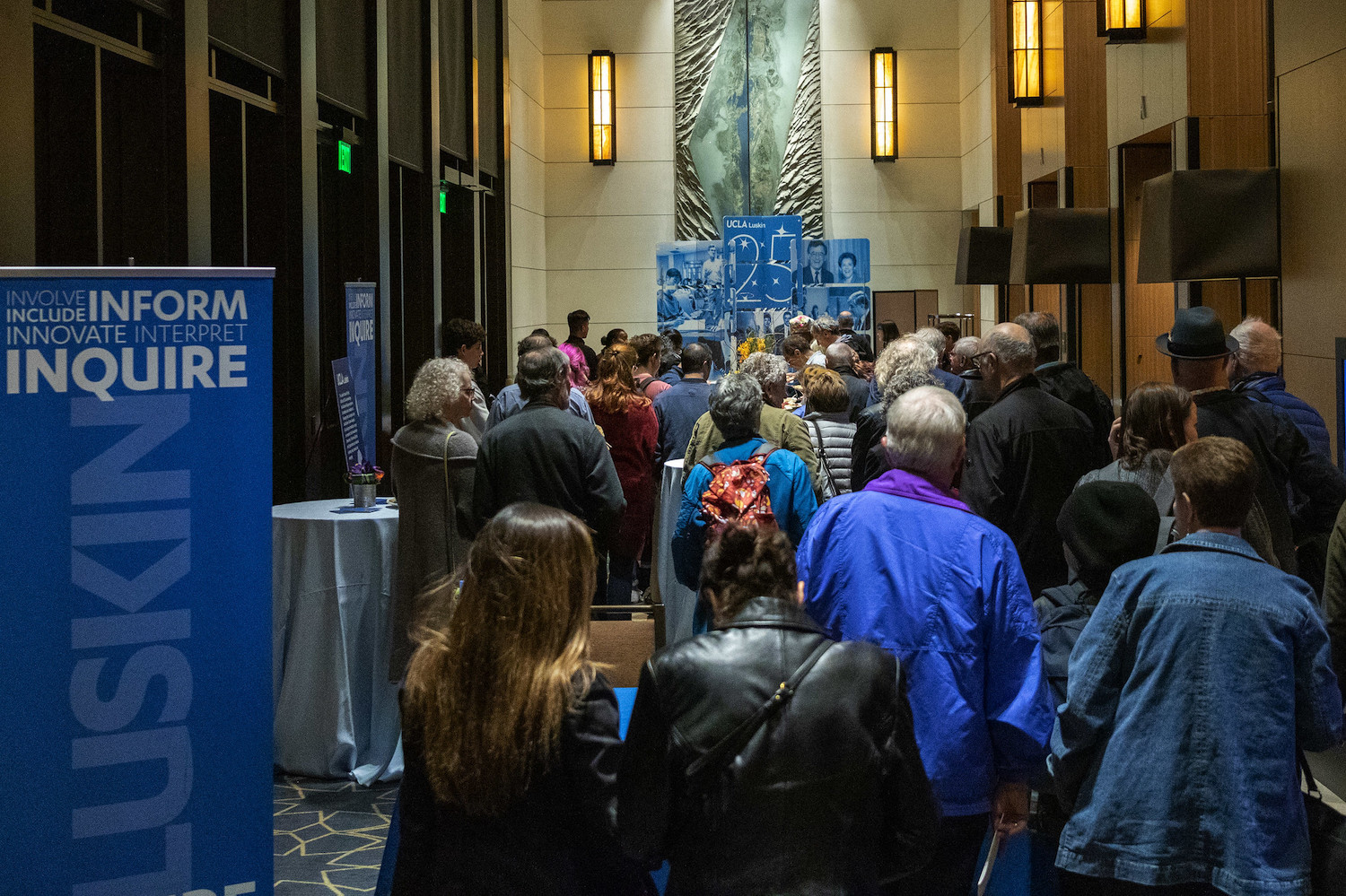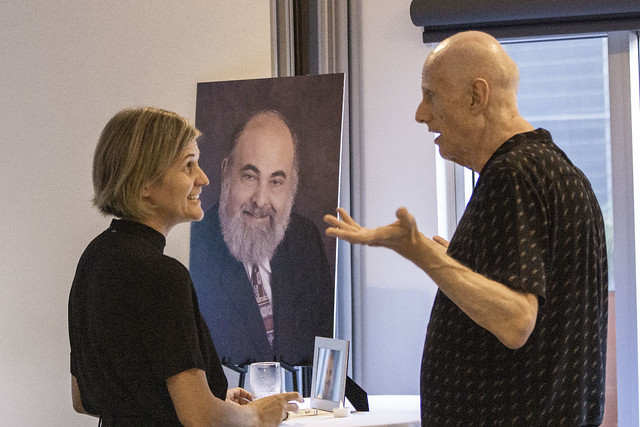By Mary Braswell
The story of America is a story of guns — from the earliest days of expansion to the political divide of 2020 — and every chapter reveals thorny questions about nation building, race and whose rights most deserve to be protected.
That premise guided a UCLA Meyer and Renee Luskin Lecture Series event that explored what historian, author and educator Roxanne Dunbar-Ortiz called the “gun love” ingrained in U.S. culture.
The 390 million privately owned guns in the United States — most of which are semiautomatic or high-caliber sidearms and rifles — account for half the worldwide total, Dunbar-Ortiz said, even though Americans make up just 4% of the global population. Of American adults who own guns, 61% are white men.
The numbers tell part of the story, but society “cannot make sense of gun hoarding and the cult of the gun if we don’t deal with white nationalism,” she added. “And we can’t deal with white nationalism without dealing with United States history.”
Dunbar-Ortiz, author of “Loaded: A Disarming History of the Second Amendment,” interspersed her keynote address with insights from her own deep involvement with firearms as a young woman. Held at UCLA’s Luskin Conference and Guest Center, the Feb. 11 event included a panel discussion with Dunbar-Ortiz; Adam Winkler, a gun policy expert and professor of law at UCLA School of Law; Ismael Ileto, an activist fighting against gun violence and hate crimes; and moderator Brad Rowe, a lecturer at the UCLA Luskin School of Public Affairs and expert in criminal justice policy.
“What seems clear to me is that we cannot depend on the rush of adrenaline, the indignation, the inspiration that we feel after a tragic event to carry us through the hard work of policy reform,” Rowe said.
The panelists related personal tales of loss, debated how to best effect change and discussed arguments over the reach of the Second Amendment.
Some gun control advocates believe the amendment was never intended to guarantee an individual’s right to bear arms.
Dunbar-Ortiz offered a darker view of the founders’ intent: “The violent appropriation of native land by white settlers was seen as an individual right in the Second Amendment” — one of several points in U.S. history when the right to bear arms was invoked to secure white privilege.
“That long, intergenerational, violent struggle to take the land is why descendants of those mostly Anglo and Scots-Irish settlers today believe they are the authentic lords of the United States and should govern — a kind of blood right,” she said.
Even as she delivered blunt appraisals of modern-day policing, the National Rifle Association, Republican leaders and the Junior ROTC — a program that she believes is responsible for the “normalization of militarism for children” — Dunbar-Ortiz shared stories of her own immersion in gun culture. She grew up around firearms in rural Oklahoma, and in her 30s, she joined an armed radical-left group that amassed a huge arsenal.
“A firearm slung over your shoulder or a 9 mm Browning tucked under your belt creates a sense of amplified power, without which you feel naked and vulnerable,” she said. “Guns are awesome. They are also beautiful objects that are addictive.”
In addition to the mass shootings that capture headlines, access to guns is linked to alarming rates of suicide and domestic violence, and the evening’s panelists grappled with how to stem the public health crisis.
“It always boils down to who’s in office,” said Ileto, whose brother Joseph was shot to death in 1999 by a white supremacist who had also attacked children at a Jewish community center in Granada Hills.
“We can march and march, we can do all these panels, we can do all the conferences we want, and nothing will be changed. Nothing will move [us] forward to a safer society until we change the ones who can change the law,” Ileto said.
Winkler pointed to the divide between U.S. lawmakers — some of whom are beginning to champion gun safety reforms, which were once taboo — and U.S. courts, which appear on the verge of expanding gun rights.
“I think many people who follow this area feel that the Supreme Court is likely to step back into the Second Amendment fray … maybe even to outlaw bans on military-style rifles or to outlaw bans on high-capacity magazines or to say it’s a constitutional requirement for cities like Los Angeles to allow people to carry guns on our streets,” Winkler said.
Rowe invited those who would preserve or expand gun rights to join the conversation.
“If we do hope to develop long-lasting gun reform, it cannot be done in a vacuum and without consideration for the legitimate claims of gun advocates,” he said.
Dunbar-Ortiz offered a counterpoint. Invoking her extensive experience with gun communities, she said, “I don’t think it’s worth your time to try to convert them, frankly.”
Instead, she called on passionate grassroots organizers to fight for gun control laws at the state and local levels.
“I think the social movements are going to be more important than candidacy to change things,” she said. But, she cautioned, “I doubt that any common-sense firearms regulation can be enacted until the Second Amendment is understood to represent white supremacy and genocide.”
The event, which was covered by C-SPAN, was part of UCLA Luskin School of Public Affairs’ 25th anniversary commemoration. Gary Segura, dean of the Luskin School, said the evening’s topic was chosen to stimulate conversation and turn research and critical thinking into action — the core mission of the Luskin Lecture Series.
“Whether it is immigration, whether it’s crime, incarceration, violence against women, mental health issues, suicide prevention and many, many other issues, guns are deeply connected to the work and the challenges that we try to address at the Luskin School,” Segura explained during his welcoming remarks.
The widespread impact of gun culture was reflected in the event’s numerous sponsors, which included the nonprofit Women Against Gun Violence, David Geffen School of Medicine at UCLA, UCLA Graduate School of Education and Information Sciences, the Health Equity Network of the Americas, the Jane and Terry Semel Institute for Neuroscience and Human Behavior at UCLA, UCLA Law, and the Social Welfare and Public Policy programs at the Luskin School.
View a video and more photos of the “Cult of the Gun” event.

